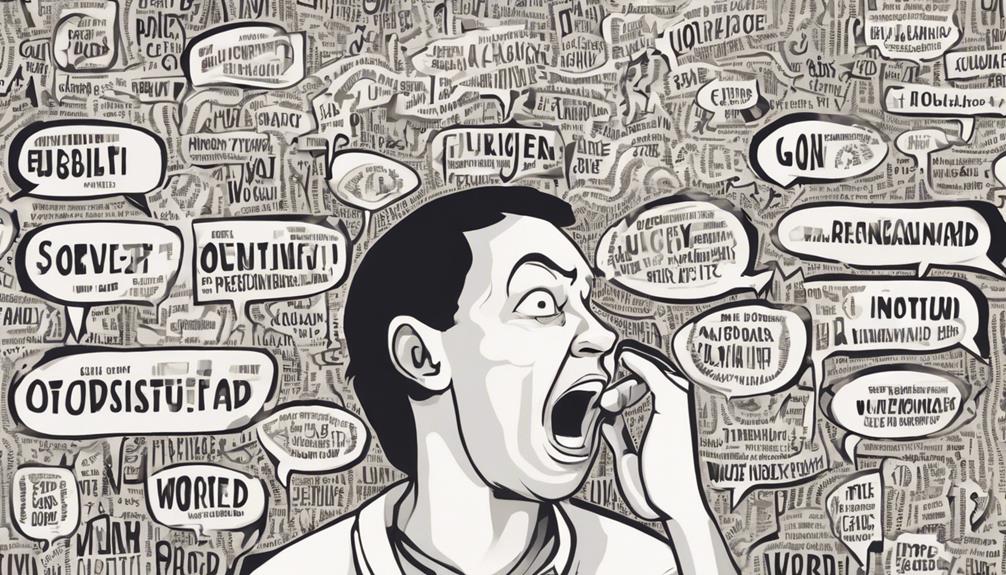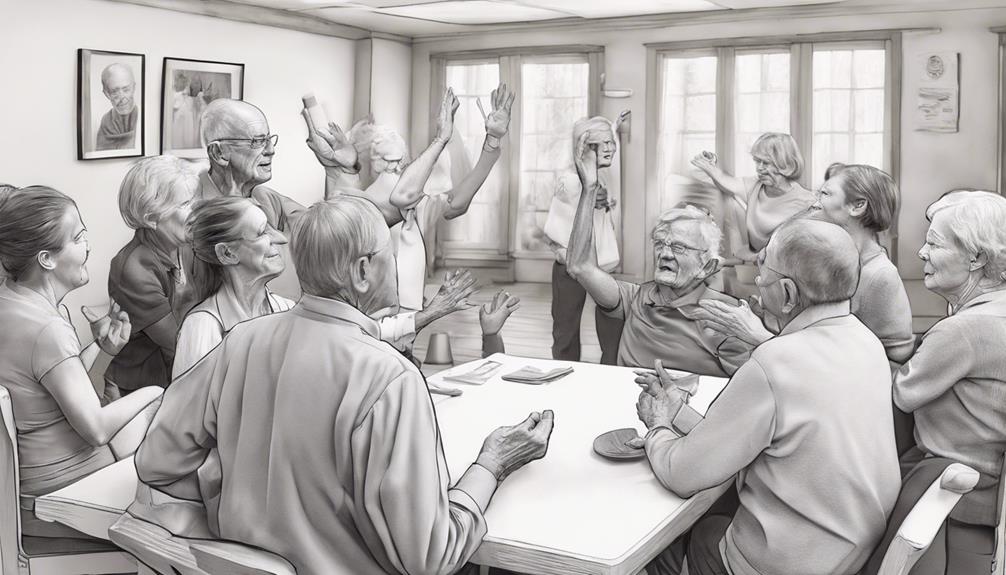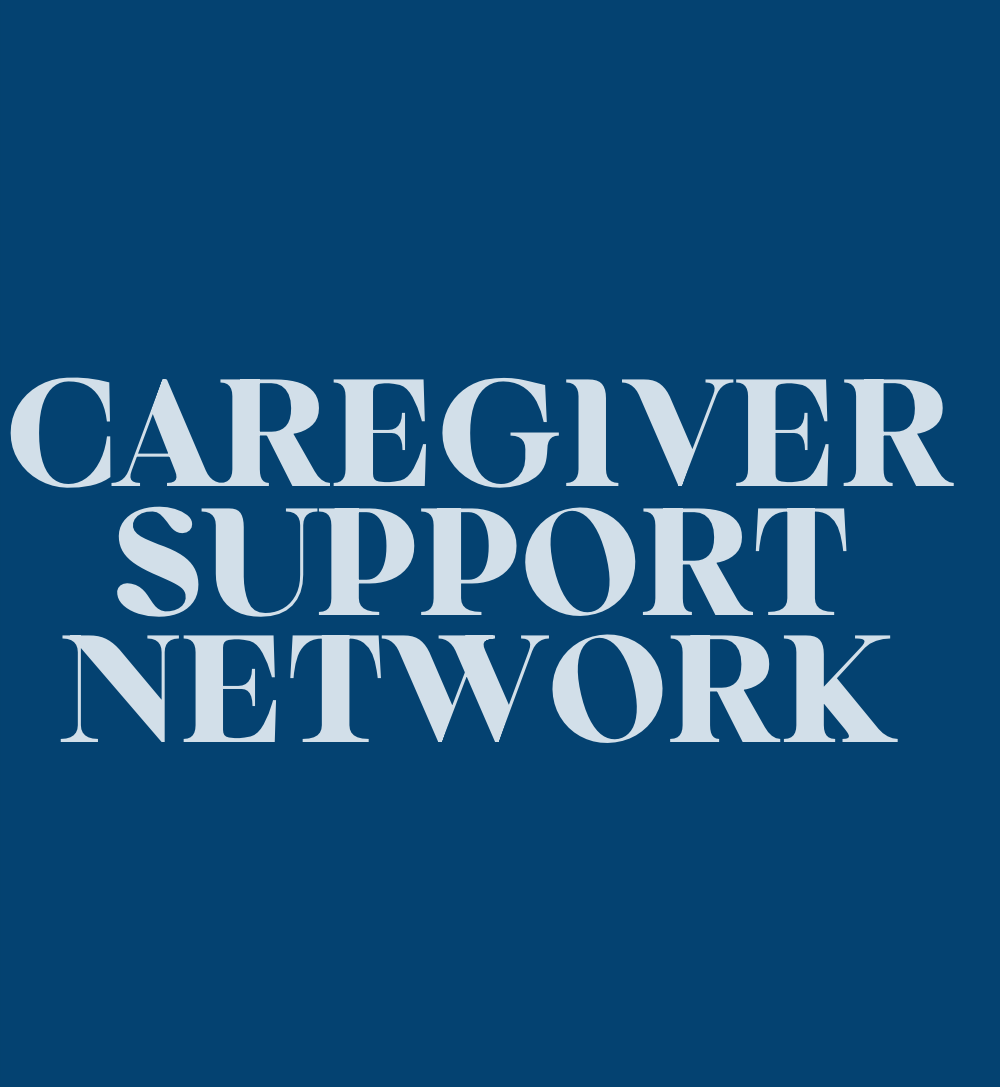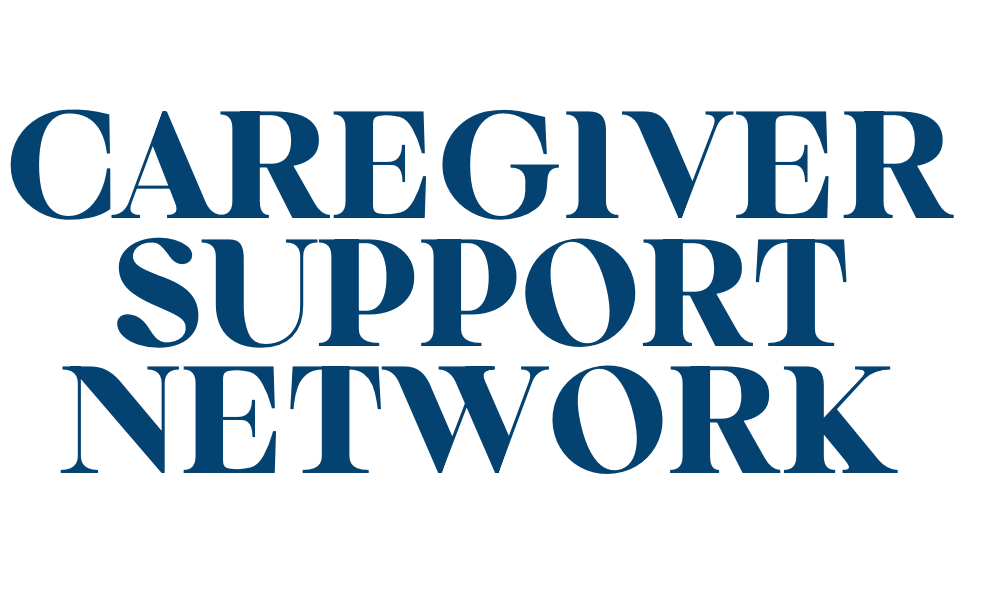Caregiver Support
Common Dementia Symptoms
Uncover the key signs of dementia symptoms that impact memory, communication, and daily tasks, leaving you intrigued for more insights.

When we talk about common dementia symptoms, it's important to notice key signs in memory, confusion, communication, mood, behavior, and daily tasks. Memory loss, trouble remembering recent details, and finding words are early signs. Challenges in language, disorientation, impaired judgment, and abstract thinking come next. Watch for mood swings, personality changes, and withdrawal from usual activities. Also, observe a decline in initiative, struggle with spatial tasks, movement coordination problems, and object misplacement. These symptoms impact daily life to a great extent. Keep exploring to deepen your understanding of dementia indicators.
Key Takeaways
- Memory loss is a common symptom in dementia.
- Confusion and disorientation are prevalent in dementia patients.
- Communication difficulties often arise in individuals with dementia.
- Changes in mood and behavior are frequently observed in dementia.
- Dementia can lead to a loss of ability to perform daily tasks.
Early Cognitive Symptoms
We may notice early cognitive symptoms of dementia through signs like memory loss and challenges in communication. Memory loss, especially with recent information, can be one of the first indicators that something might be important. Forgetting important details or having trouble recalling recent events could signal early cognitive impairment.
Communication challenges, such as difficulty finding the right words, may also become apparent. This can manifest as struggling to express thoughts clearly or experiencing confusion when trying to hold conversations.
Impaired reasoning abilities, like trouble with problem-solving, are common early symptoms of dementia. Individuals may find it challenging to make decisions or follow logical sequences of tasks. Difficulty concentrating and focusing on daily tasks can also be early signs of cognitive decline. Tasks that were once routine, like following a recipe or managing finances, may become increasingly challenging.
Recognizing these early cognitive symptoms is important for early intervention and support.
Language and Communication Changes

Noticing language and communication changes in individuals with dementia can provide crucial insights into their cognitive health status. Language challenges, such as substituting words in conversations and struggling to find the right words, are common symptoms of dementia. People with dementia may experience word-finding difficulties and have trouble expressing themselves clearly and coherently. These language and communication changes can greatly impact social interactions and daily functioning.
Forgetting simple words and experiencing word-finding difficulties are indicative of language impairment, which can be early signs of cognitive decline associated with dementia. It's important to pay attention to these changes as they can help in identifying dementia symptoms early on. Understanding these language and communication challenges can aid in providing better care and support for individuals with dementia.
Disorientation and Impaired Judgment
Disorientation in dementia often manifests as confusion regarding time, location, and familiar places. This confusion can make it challenging for individuals to understand where they are, what day it is, or how to get back home.
Alongside disorientation, impaired judgment is a common symptom of dementia. It involves making poor decisions, neglecting personal safety, and displaying inappropriate behavior. People with impaired judgment may struggle to recognize health risks or manage their finances effectively.
Tasks that were once routine may become confusing, and the ability to assess consequences may diminish. These symptoms have a substantial impact on daily functioning, making it essential to provide monitoring and support to individuals with dementia.
Abstract Thinking and Misplacement Issues

Abstract thinking difficulties in dementia often present challenges with understanding numbers, symbols, and complex concepts, impacting daily tasks to a significant extent. Individuals with dementia may struggle with managing finances due to impaired judgment, leading to difficulties in budgeting and making appropriate financial decisions. Additionally, abstract thinking issues can manifest in compromised problem-solving skills, affecting the ability to navigate daily life effectively.
These challenges go beyond mere mathematical difficulties; they can also extend to a lack of recognition of health risks. For instance, individuals with dementia-related abstract thinking impairments may not fully grasp the consequences of certain actions, putting their well-being at risk. Understanding abstract concepts and numbers becomes progressively challenging, making it essential for caregivers and loved ones to provide support and guidance in managing these aspects of daily life.
Recognizing and addressing these abstract thinking challenges in dementia is vital for ensuring the overall well-being and safety of individuals affected by this condition.
Mood, Personality, and Behavioral Changes
As we shift our focus to mood, personality, and behavioral changes in individuals with dementia, it becomes evident that these alterations can greatly impact their daily interactions and overall well-being. Mood swings, anxiety, and personality changes are common in dementia, leading to noticeable shifts in behavior. These changes can manifest as irritability, fearfulness, and confusion, affecting how individuals engage with others and handle daily routines.
Specific routines may help manage some of these alterations, but disrupted routines can often trigger irritable behavior and anxiety. Additionally, withdrawal from social activities and hobbies can indicate significant mood and personality changes. It's essential to be patient and understanding when dealing with individuals experiencing these drastic shifts in behavior.
Loss of Initiative and Spatial Challenges

Loss of initiative in dementia can make us feel unmotivated, leading to a lack of interest in activities we once enjoyed.
Spatial challenges, on the other hand, might cause us to struggle with directions and become disoriented in our surroundings.
These difficulties can impact our daily life, making tasks like finding our way in a familiar place or placing objects correctly more challenging.
Lack of Motivation
Experiencing a lack of motivation can greatly impact individuals with dementia, leading to a decline in engagement with once-enjoyed activities. When dealing with lack of motivation in dementia, it's important to understand how it can affect daily life.
- Loss of initiative is common in dementia, causing individuals to lose interest in things they once found enjoyable.
- People with dementia may require cues or reminders to help them engage in everyday tasks due to their lack of motivation.
- Spatial challenges associated with dementia can lead to difficulties with depth perception and spatial awareness, impacting coordination and object placement.
Seeking guidance from medical specialists is essential to address visual and spatial challenges linked to dementia effectively.
Difficulty With Directions
Understanding the difficulties individuals with dementia face in following directions can shed light on the impact of both loss of initiative and spatial challenges on their daily functioning. Spatial challenges in dementia can manifest as issues with depth perception, spatial awareness, and coordinating movements. Individuals may experience placement difficulties, visual impairments, and spatial impairments, making simple tasks like following directions or organizing space challenging. Seeking guidance from medical specialists and eye professionals is essential to address these visual and spatial challenges effectively. These impairments can have a profound effect on daily functioning, making it imperative to provide support and assistance to individuals with dementia in maneuvering their surroundings.
| Spatial Challenges | Impact on Daily Functioning | Seeking Help from Specialists |
|---|---|---|
| Depth Perception | Challenges with tasks | Medical professionals |
| Spatial Awareness | Difficulty in orientation | Eye specialists |
| Coordinating Movements | Struggles with movement | Spatial impairment specialists |
Spatial Disorientation
Performing daily tasks becomes challenging for individuals with dementia due to spatial disorientation affecting their depth perception and spatial awareness. This can lead to difficulties in coordinating movements and placing objects correctly. Vision problems associated with spatial challenges further impact daily activities and safety.
Seeking guidance from medical and eye specialists is essential for diagnosing and managing spatial disorientation in dementia. Additionally, spatial challenges increase the risk of falls and accidents in individuals with dementia.
- Struggling with coordinating movements
- Placing objects incorrectly
- Impact on daily activities and safety
Frequently Asked Questions
What Are the Top 10 Signs of Dementia?
We'll list the top 10 signs of dementia in a concise manner. Our answer will help you recognize warning signs like memory issues, challenges with tasks, communication struggles, disorientation, and impaired judgment, aiding early detection.
What Is the First Stage of Dementia?
In the first stage of dementia, we may notice subtle memory changes, difficulty recalling recent information, forgetting appointments, misplacing items, and struggling with familiar tasks. Seeking early medical evaluation and intervention are essential for managing symptoms.
At What Age Does Dementia Usually Start?
Dementia typically starts after age 65, with risk increasing as we grow older. Factors like genetics, lifestyle, and health can influence onset age. By 85, about 1 in 6 people will have dementia, showing age-related risk.
What Are the 5 Early Signs of Dementia?
We notice difficulty remembering recent information, struggling with familiar tasks, changes in language, disorientation in familiar places, and impaired judgment as early signs of dementia. Recognizing these signs is crucial for proper care.
Conclusion
To wrap up, dementia symptoms can vary widely and impact individuals in different ways. While early cognitive symptoms may manifest subtly, language and communication changes can become more pronounced. Disorientation and impaired judgment can lead to confusion, while abstract thinking and misplacement issues can cause frustration. Mood, personality, and behavioral changes may also occur, along with a loss of initiative and spatial challenges.
Understanding these common symptoms is vital in providing support and care for those affected by dementia.
Albert brings a wealth of knowledge and expertise to our writing team. With a background in caregiving and a deep understanding of the challenges faced by caregivers, Albert’s writing resonates with authenticity and empathy. He is committed to delivering high-quality content that empowers and supports caregivers on their journey.
Caregiver Support
Recognizing the Important Role of Family Caregivers in Healthcare Teams
Caregivers play a crucial role in healthcare teams, impacting patient outcomes significantly – learn how their involvement can transform care.

Family caregivers are essential in healthcare teams, improving patient outcomes and quality. Around 43 million caregivers offer necessary care without formal training. They help with complex medical tasks and work alongside healthcare professionals. Recognizing and involving them enhances healthcare quality. Caregivers face challenges like distress and health risks from chronic stress. Involving them in care planning enhances communication and coordination, leading to better outcomes. Addressing their health needs is critical to prevent long-term consequences. Integrating and supporting caregivers is key, with training, resources, and acknowledgment benefiting both patients and caregivers. Learn more about caregivers' crucial role in healthcare teams.
Key Takeaways
- Family caregivers enhance patient outcomes and healthcare quality.
- Acknowledgment integrates caregivers into healthcare teams.
- The CARE Act emphasizes family caregivers' importance in acute care settings.
- National Family Caregivers Month highlights their essential role.
- Supporting and acknowledging caregivers positively impacts patient outcomes.
Importance of Family Caregivers
Recognizing the essential role of family caregivers in healthcare teams is necessary for enhancing patient outcomes and overall healthcare quality. Family caregivers play a pivotal role in providing care and support to their loved ones, especially those with chronic health conditions. In the U.S., approximately 43 million caregivers take on responsibilities such as wound care, pain treatment, and incontinence care, often without formal training. These caregivers are an integral part of the healthcare team, offering indispensable assistance in managing complex medical tasks.
In hospitals, family caregivers work alongside healthcare professionals to guarantee the well-being of the patient. Their contributions in caregiving not only provide comfort and support to the patient but also help in improving overall healthcare quality. Efforts are being made to recognize and integrate family caregivers into the healthcare team through initiatives like the CARE Act. By understanding and appreciating the critical role that family caregivers play in care services, we can enhance patient outcomes and create a more holistic approach to healthcare.
Challenges Faced by Caregivers

Family caregivers, despite their invaluable contributions to healthcare teams, face numerous challenges that greatly impact their well-being and ability to provide effective care. Caregivers often experience caregiver burden, which encompasses the physical, emotional, and financial strains of caring for a loved one. The demands of caregiving can lead to caregiver distress, resulting in stress, burnout, and difficulties in maintaining a healthy balance between caregiving responsibilities, personal life, and work commitments.
Additionally, the lack of adequate support networks, conflicts in decision-making within the caregiving dynamic, and the overwhelming medical and emotional needs of the care recipient can exacerbate caregiver strain.
Moreover, the role of caregivers in the healthcare system can take a toll on their own health, as they're at a heightened risk of developing health issues such as hypertension, insomnia, and weakened immune systems due to the chronic stress associated with caregiving. It's important to recognize and address these challenges faced by family caregivers to support their well-being and effectiveness in providing care.
Involving Caregivers in Care Planning
With their crucial role in care planning, family caregivers actively contribute to enhancing patient outcomes and optimizing the quality of care provided. Caregivers play an essential part in developing personalized care plans by sharing valuable insights and providing necessary support.
Involving caregivers in care planning not only leads to better patient outcomes but also improves the overall quality of care delivered. Recognizing caregivers as integral members of the healthcare team enhances communication, coordination, and ultimately contributes to the patient's well-being.
Addressing Caregivers Health Needs

To guarantee the well-being of caregivers and prevent adverse health outcomes, addressing their health needs is vital. Caregivers face an increased risk of health issues such as hypertension, insomnia, and weakened immune systems due to the stress of caregiving. Neglecting their own health can lead to long-term consequences as they prioritize the patient's well-being over their own.
Regular monitoring and interventions are essential to address caregivers' health concerns and prevent adverse outcomes. It's important to recognize caregivers as second-order patients with their own mental and physical well-being that require attention. Caregivers often experience physical stress, emotional exhaustion, isolation, and burnout, emphasizing the need for inclusive support.
Empowering and Supporting Caregivers
Efforts to empower and support caregivers are essential for enhancing their ability to provide quality care and navigate the healthcare system effectively. Family caregivers play a vital role in the healthcare team, and by empowering and supporting them, we can improve patient outcomes and overall healthcare quality.
To achieve this, it's vital to take into account the following:
- Integration: Family caregivers should be integrated into the healthcare team to guarantee collaborative care.
- Formal Training: Providing formal training for family caregivers on medical tasks is fundamental for their confidence and competence.
- Resources: Offering resources such as support groups and informational materials can assist caregivers in their role.
- Education: Continuous education on caregiving techniques and healthcare procedures is crucial to ensuring caregivers are well-equipped to provide quality care.
Enhancing Patient Care Outcomes

Acknowledging the pivotal role of family caregivers in healthcare teams, their involvement greatly contributes to enhancing patient care outcomes, particularly for individuals with chronic health conditions. Family caregivers play a critical role in improving patient care by assisting with personalized care plans for those with chronic illnesses. Their support helps health care providers deliver thorough patient care, leading to better health outcomes.
Integrating family caregivers into the healthcare team through initiatives like the CARE Act is vital for providing holistic care. Educating family caregivers about their roles can result in reduced hospitalization rates and increased quality of care for patients. By acknowledging the value and importance of family caregivers, we can achieve better overall health outcomes and guarantee that patients with chronic conditions receive the attention and support they need.
Family caregivers are instrumental in the success of patient care, making their involvement essential in healthcare teams.
Public Policies for Caregivers

Public policies play a vital role in shaping the support available to family caregivers. These policies can impact caregivers by providing resources and guidance on managing complex medical tasks.
Evaluating support programs can help determine their effectiveness in assisting caregivers and enhancing patient care outcomes.
Policy Impact on Caregivers
Integrating family caregivers into healthcare teams through supportive policies enhances patient outcomes and fosters a more inclusive approach to care. Public policies like the CARE Act aim to recognize family caregivers as vital team members, leading to improved communication, coordination, and support within healthcare teams.
Over 30 million family caregivers in the U.S. provide essential assistance to individuals with acute and chronic illnesses. By involving family caregivers in care planning and decision-making processes, a more personalized and effective patient care approach can be achieved.
Recognizing the importance of family caregivers not only benefits patients but also empowers caregivers to contribute meaningfully to the well-being of their loved ones.
Support Programs Evaluation
Evaluating the effectiveness of support programs for caregivers is essential for enhancing their well-being and the quality of care they provide. Public policies play an important role in ensuring family caregivers receive the necessary support to navigate the demands of medical care for individuals with chronic illnesses.
By integrating caregivers into the healthcare team through evidence-based interventions, such as caregiver support programs, we can improve overall health outcomes. Monitoring and appraising these programs allow us to understand their impact on caregiver well-being and identify areas for improvement.
Public policies focused on caregiver integration and well-being are essential for creating a supportive environment that recognizes the invaluable contributions of family caregivers in the healthcare system.
Acknowledging Caregivers Contributions

As we explore the topic of acknowledging caregivers' contributions, it's important to highlight the crucial role they play in healthcare teams.
Caregiver support programs are designed to provide assistance and resources to those who selflessly care for their loved ones.
Recognizing and appreciating their efforts can greatly improve the overall well-being of both the patients and the caregivers themselves.
Caregiver Support Programs
In recognizing the valuable contributions of family caregivers, caregiver support programs play an essential role in empowering these individuals in managing chronic health conditions.
These programs provide resources, training, and education to assist caregivers in their roles. By acknowledging caregivers' efforts, support programs aim to reduce caregiver stress and improve patient outcomes.
Collaboration between healthcare professionals and caregivers is vital in developing personalized care plans that enhance holistic patient care. Through caregiver support programs, family caregivers receive the necessary tools and guidance to navigate the challenges of caregiving, ensuring both their well-being and the well-being of those they care for.
Recognition of Efforts
Recognizing family caregivers' contributions is crucial in improving patient outcomes and elevating the quality of healthcare provided. By acknowledging the hard work and commitment of family caregivers, we not only demonstrate gratitude but also integrate them into the healthcare team effectively.
The CARE Act, implemented in acute care settings, underscores the importance of recognizing family caregivers as essential members of the healthcare team. This acknowledgment leads to better support for both patients and caregivers, ultimately enhancing overall healthcare quality.
National Family Caregivers Month serves as a reminder of the essential role family caregivers play in patient care. Supporting and acknowledging family caregivers' efforts can have a significant impact on patient outcomes positively and enhance the healthcare experience for all involved.
Frequently Asked Questions
How Is the Role of a Family Caregiver Important in Patient Care?
In patient care, family caregivers play an essential role by providing support, administering medication, and aiding with daily tasks. Their involvement enhances patient outcomes and fosters personalized care plans, emphasizing the importance of their contributions.
Why Is It Important to Involve Family Members in the Health Care of Elderly Persons?
Involving family members in elderly health care is crucial for holistic support. They offer unique insights, comfort, and continuity, enhancing patient well-being. Collaboration between healthcare professionals and families leads to better outcomes, improving overall quality of care.
Why Are Family Caregiver Relationships Important?
Family caregiver relationships are essential as they provide necessary support for those with chronic health conditions. We assist with medication, communication, and daily tasks. Over 43 million of us in the U.S. play a critical role in caring for our loved ones.
What Is the Nursing Role in Relation to Family Caregivers?
In supporting family caregivers, we guide on medical tasks, advocate for resources, and improve patient outcomes. Our role empowers caregivers, enhancing their skills to navigate healthcare systems and provide better care for loved ones.
Conclusion
Just as a gardener tends to their plants with care and attention, family caregivers play a crucial role in nurturing their loved ones' health and well-being.
By recognizing and supporting caregivers, healthcare teams can guarantee better outcomes for patients and families alike.
Let's continue to value and empower these unsung heroes, as they're the backbone of our healthcare system and deserve our utmost respect and gratitude.
Albert brings a wealth of knowledge and expertise to our writing team. With a background in caregiving and a deep understanding of the challenges faced by caregivers, Albert’s writing resonates with authenticity and empathy. He is committed to delivering high-quality content that empowers and supports caregivers on their journey.
Caregiver Support
Understanding the 7 Stages of Grief
Navigate the emotional journey of grief through the 7 stages, discovering insights that lead to healing and growth.

When dealing with grief, we go through seven stages. First, shock and disbelief set in – feeling numb and questioning reality. Next is denial, a shield from the pain. Anger follows, a normal emotion to express. Bargaining arises, trying to negotiate our feelings. Then, depression hits, causing overwhelming sadness. Finally, acceptance brings a new beginning. This healing phase helps us move forward and cherish memories. These stages guide us through loss, showing a path to emotional healing and growth. Understanding these phases can aid in maneuvering through tough times and finding resilience when faced with challenges.
Key Takeaways
- Shock and disbelief stage involves numbness and questioning reality.
- Denial is a coping mechanism for emotional protection.
- Anger is a common response fueled by frustration or blame.
- Bargaining includes seeking compromises and reflecting on positive memories.
- Depression stage features overwhelming sadness and isolation.
Shock and Disbelief
Experiencing shock and disbelief is a natural response to loss, serving as a shield against the overwhelming emotions of grief. When we first encounter a significant loss, our minds may struggle to accept the reality of what's happened. This initial reaction can lead to feelings of numbness and being disconnected from the world around us. We might find ourselves questioning the truth of the situation, unable to fully grasp the magnitude of our loss.
During this phase, denial often becomes a coping strategy. It can manifest as difficulty accepting the truth, as we try to shield ourselves from the pain and sorrow that accompany the loss. Denial may lead to emotional detachment, creating a sense of unreality as we grapple with the enormity of our emotions. It's essential to recognize these initial reactions as part of the grieving process, allowing ourselves the time and space to navigate through the shock and disbelief before moving forward.
Denial

In the initial stages of grief, denial acts as a protective shield against the harsh reality of loss, allowing individuals to temporarily avoid confronting overwhelming emotions. Denial is a common coping mechanism in the grief process, where individuals may resist accepting the reality of the loss. It serves as a defense mechanism to protect from overwhelming emotions, leading to feelings of numbness and disbelief.
People in denial may avoid reminders of the loss and question the truth of the situation to create a buffer against pain. This stage of denial can manifest as difficulty acknowledging the loss, feeling disconnected, or denying the impact of the grief. Emotional detachment may occur as individuals struggle to come to terms with the loss.
Understanding that denial is a natural part of the grieving process can help individuals navigate through this challenging stage with patience and self-compassion.
Anger
Moving on from denial, anger emerges as a common emotional response during grief, often fueled by feelings of frustration, injustice, or blame. It's natural to experience anger as part of the grieving process, and it may manifest in various ways, such as directing it inward towards oneself or outward towards others, including the deceased.
Expressing anger in healthy ways, like through open communication or engaging in physical activities, can help in processing grief effectively. Throughout the mourning journey, anger may fluctuate in intensity, but it's important to understand that it's a normal part of moving through loss.
Bargaining

During the bargaining stage of grief, we find ourselves trying to negotiate with our emotions, seeking compromises, and looking for alternative solutions to what's happened.
It's a time when we may feel guilt and helplessness, wondering if there was something more we could have done to prevent our loss. Reflecting on positive memories or conversing with the person we've lost can help us navigate through this challenging phase of grief.
Coping Through Negotiation
Seeking reasons, making promises, and attempting to negotiate with the reality of the loss characterize the stage of grief known as bargaining. During this phase, feelings of guilt and helplessness may arise as individuals try to find ways to cope with their pain.
It's common to reflect on cherished memories and seek solace in honoring the memory of the departed loved one. Writing letters or talking to the deceased can act as coping strategies in this stage.
Searching for Compromise
In the bargaining stage of grief, individuals often find themselves searching for compromises or making deals to alter the outcome of their loss. It's common to dwell on 'if only' or 'what if' scenarios, trying to find ways to change what's happened. Some may even attempt to negotiate with a higher power, fate, or the person they've lost. Feelings of guilt and regrets can weigh heavily during this phase.
Bargaining is a response to feeling helpless, as people try to regain control over the situation. It's important to recognize these emotions and thoughts as part of the grieving process, allowing oneself to navigate through this stage with patience and self-compassion.
Seeking Alternate Solutions
Exploring different avenues for resolution, individuals in the bargaining stage of grief often attempt to renegotiate the terms of their loss. This stage involves seeking alternate solutions, feeling guilt and helplessness while trying to make sense of the loss. People may reflect on what could have been done differently or make promises in exchange for reversing the loss.
Bargaining can serve as a way to regain control or find meaning in an overwhelming loss. By examining bargaining behaviors, we gain insight into the emotional complexities of grief and the struggle to accept the reality of a loss. It's important to acknowledge these feelings and understand that bargaining is a common part of the grieving process as we navigate through our emotions towards acceptance.
Depression

Experiencing overwhelming sadness and hopelessness is a vital manifestation of depression during the grieving process. Symptoms of grief-related depression can include a loss of interest in daily activities. Isolating oneself from others is also common during periods of grief-related depression.
Physical symptoms like fatigue or insomnia may accompany feelings of intense longing for what's gone. Seeking help from a grief counselor is important for managing depression and finding healthy coping strategies.
It's essential to recognize these signs and symptoms to address them effectively. If you or someone you know is struggling with grief-related depression, don't hesitate to reach out for support. Remember, it's okay to ask for help, and there are professionals available to guide you through this challenging time.
Stay connected with loved ones, engage in self-care activities, and consider seeking professional assistance to navigate through the complexities of grief-related depression.
Testing

During the testing stage of grief, we start experimenting with new ways to cope with our loss.
This phase involves trying out different strategies to see what works best for us.
It's important to explore various coping mechanisms and seek support systems during this time.
Coping Mechanisms
Experimenting with various coping strategies is essential in effectively traversing the stages of grief. When dealing with grief, it's critical to express your emotions, set achievable goals, and maintain a healthy lifestyle. Trying out different coping mechanisms can help you find what works best for you.
Seeking professional help is a valuable resource in maneuvering the challenges of grief. Writing letters to your lost loved one or talking to them can aid in coping with feelings of guilt and bargaining. Engaging with others, seeking distractions, and finding healthy outlets for anger are also important coping strategies during the grieving process.
Support Systems
Utilizing diverse support systems is pivotal in maneuvering the complexities of grief and testing their effectiveness in providing comfort and guidance. Here are some key points on support systems:
- Support systems offer emotional and mental support during the stages of grief.
- Having a strong support system helps individuals navigate emotions effectively.
- Support can come from friends, family, support groups, therapists, or spiritual leaders.
- These systems provide a safe space for expression, understanding, and healing.
- Seeking support from various sources can aid in coping with grief, offering different perspectives and coping strategies.
Acceptance

Traversing through the 7 stages of grief, acceptance emerges as a pivotal phase where individuals confront the reality of loss and begin to embrace a new chapter in life. It involves acknowledging that the loss is real and accepting that it can't be changed. Moving forward while still honoring the memories of the deceased loved one is a significant aspect of this stage.
Engaging with others and seeking distractions can help in coping with the pain and adjusting to a new normal. Acceptance allows individuals to reconnect with life and consider future possibilities. It's a vital step in the healing process, as it enables one to start looking towards the future while still holding onto the cherished memories of the past.
Frequently Asked Questions
What Is the 7 Stage Grieving Process?
The 7 stage grieving process involves a series of emotional stages like shock, denial, and acceptance. These stages help us navigate through grief, understand our feelings, and eventually heal. Each stage is crucial in our journey to healing.
What Is the Hardest Stage of Grief?
Acceptance, the hardest stage of grief for some, demands embracing the loss's finality and adjusting to a new normal. It's like maneuvering through a storm, but with time, we learn to find peace.
How Do I Know What Stage of Grief I'm In?
We can identify our grief stage through our predominant emotions and behaviors. It's normal to wonder where we are in the process. Recognizing our feelings and seeking support can help us navigate this challenging time.
What Not to Do When Grieving?
When grieving, we must avoid suppressing emotions, isolating ourselves, rushing the process, or self-medicating. Seeking support, being patient with ourselves, and asking for help when needed are vital. It's essential to navigate grief with care and compassion.
Conclusion
To summarize, comprehending the 7 stages of grief can assist us in navigating through challenging times in life. Just like a caterpillar transforming into a butterfly, we too can progress through these stages and emerge stronger on the other side.
By acknowledging and embracing our emotions, we can ultimately find peace and healing. Remember, it's okay to feel a range of emotions during times of loss and change. Embrace the journey and trust in the process of healing.
Albert brings a wealth of knowledge and expertise to our writing team. With a background in caregiving and a deep understanding of the challenges faced by caregivers, Albert’s writing resonates with authenticity and empathy. He is committed to delivering high-quality content that empowers and supports caregivers on their journey.
Caregiver Support
Understanding and Managing Alzheimers Disease Confusion
Peek into effective strategies for managing Alzheimer's confusion to enhance your caregiving skills and support your loved ones.

Understanding and managing Alzheimer's disease confusion involves knowing causes like brain cell damage and routine changes. Medications ease symptoms but don't stop the damage. Keeping familiar schedules is essential. Eye contact and slow speech aid in communication. Visual aids like photos help too. Positive language is key. Stick to simple messages. Set consistent daily routines to provide stability. Caregivers are essential in this. Educate yourself on Alzheimer's symptoms and brain changes. Seek professional support for customized care plans. Early intervention and effective communication help. Professionals improve overall well-being. Learn more about managing Alzheimer's confusion effectively.
Key Takeaways
- Maintain familiar environments and routines to reduce confusion.
- Use visual aids and simple language for effective communication.
- Establish a consistent daily routine for stability and structure.
- Educate yourself on Alzheimer's symptoms and stages of development.
- Seek support from professionals for customized care plans and guidance.
Causes of Alzheimers Confusion
Progressive damage to brain cells from Alzheimer's disease is the primary cause of Alzheimer's confusion. This disease affects the brain, leading to a decline in cognitive abilities. While medications can help manage symptoms temporarily, they don't stop the ongoing damage to brain cells.
Changes in living arrangements or routines can exacerbate confusion in individuals with Alzheimer's, so it's essential to maintain familiar environments and schedules. Sudden behavior changes should be evaluated by a medical professional to rule out other potential causes.
It's vital to understand that terms like 'senility' or 'senile dementia' aren't accurate when describing the serious mental decline associated with Alzheimer's. By recognizing the progressive nature of the disease and the impact on brain cells, we can better understand and support individuals experiencing Alzheimer's confusion.
Communication Strategies for Confusion

To better assist individuals with Alzheimer's confusion, employing simple and clear communication strategies is vital. When interacting with Alzheimer's patients, maintaining eye contact and speaking slowly can help reduce confusion and aid in understanding.
Providing visual aids such as photos or written notes can also support communication by offering additional cues. Using positive and reassuring language to help make the person feel more comfortable and secure during conversations is important. Additionally, avoiding overwhelming the individual with complex information or instructions is necessary for effective communication.
Managing Confusion With Routines
Establishing a consistent daily routine is vital in managing confusion for individuals with Alzheimer's disease. Routines provide stability, predictability, and a sense of structure that can help reduce memory loss and confusion.
By following a structured daily routine, individuals with Alzheimer's can experience familiarity in their activities, which can minimize disorientation and anxiety. Caregivers play an essential role in implementing and maintaining these routines to support the individual's sense of control and well-being.
Consistency in daily tasks like meals, medication, and activities can help Alzheimer's patients navigate their day more effectively. It's important for caregivers to create a routine that's easy to follow and tailored to the individual's preferences and abilities.
Educating Yourself on Alzheimers

To better comprehend Alzheimer's disease, it's vital to educate ourselves on the key symptoms like memory loss and disorientation.
Learning about the brain changes such as plaques and tangles that contribute to the disease progression is important.
Knowing the stages of Alzheimer's development can help us understand how confusion and memory loss worsen as the disease advances.
Symptoms Awareness
Educating ourselves on Alzheimer's involves recognizing the symptoms, such as mild memory loss, confusion, and challenges in decision-making. Memory loss may manifest as difficulty recalling recent events, leading to confusion about time and people. Severe cases can result in failure to recognize loved ones or forgetting relationships.
Changes in behavior like calling family members by other names or experiencing sudden frustration require medical evaluation to rule out other causes. Highlighting that terms like senility or senile dementia are incorrect when describing Alzheimer's.
Providing simple explanations, using memory triggers like photos, and engaging in conversations about the present reality can aid in managing Alzheimer's confusion effectively.
Resources for Learning
Recognizing the importance of accessing educational resources is key in understanding Alzheimer's disease and its effects. For those seeking information and support, there are valuable resources available.
The NIA ADEAR Center provides reliable information on Alzheimer's disease, aiding in managing confusion.
The Alzheimer's Association offers education and support for individuals impacted by Alzheimer's, assisting in finding a way through the challenges that may arise.
MedlinePlus is a trustworthy source for learning about Alzheimer's, providing essential information for those seeking guidance.
The Alzheimer's Foundation of America offers assistance and guidance to those dealing with Alzheimer's, helping individuals and families cope with the condition.
Eldercare Locator can connect individuals with local resources, offering support in Alzheimer's education and management.
Seeking Support From Professionals

Seeking guidance from professionals like doctors, therapists, and social workers can provide invaluable support in managing Alzheimer's disease confusion. When reaching out to these experts, people can benefit from the following:
- Customized Care Plans: Professionals can help develop tailored care plans that address the specific needs and challenges of the person with Alzheimer's disease. These plans can include strategies for managing confusion and enhancing overall well-being.
- Early Intervention Strategies: Seeking help from professionals early on can lead to timely interventions that may slow the progression of Alzheimer's disease confusion and improve the individual's quality of life.
- Effective Communication Techniques: Professionals can offer valuable guidance on communication strategies that can help enhance interactions with the person experiencing confusion. These techniques can improve understanding and reduce frustration for both the individual and their caregivers.
Alleviating Confusion in Alzheimers

To alleviate confusion in individuals with Alzheimer's disease, providing clear and simple communication is vital. Using reminders, such as photos or notes, can trigger memories and reduce confusion.
Engaging in conversations about the person's current reality can help them stay grounded and less confused. It's essential to offer gentle corrections rather than scolding to effectively manage confusion.
Creating a familiar and calm environment with consistent routines can greatly reduce confusion and disorientation in Alzheimer's patients. By incorporating these strategies into daily interactions, caregivers can help individuals with Alzheimer's navigate their world with less confusion and frustration.
Frequently Asked Questions
How Do You Deal With Alzheimer's Confusion?
When dealing with Alzheimer's confusion, we stay calm, provide brief explanations, use reminders to trigger memories, engage in current reality conversations, and gently offer corrections. This approach helps address confusion effectively and maintain connection with the person.
What Stage of Alzheimer's Is Confusion?
Confusion is a common symptom in Alzheimer's disease, starting with mild memory issues in early stages and escalating to severe memory loss in later stages. It affects decision-making and recognition of familiar faces, worsening as the disease progresses.
What Are the Tips and Tricks for Alzheimer's Patients?
We can offer simple communication, establish routines, create a familiar environment, support hydration and mobility, and focus on feelings to assist Alzheimer's patients. These strategies can provide comfort and help in managing daily challenges effectively.
How Do You Understand Alzheimer's Patients?
Understanding Alzheimer's patients involves patience, empathy, and attentive listening. We observe their nonverbal cues, validate their emotions, and create a supportive environment. By focusing on their needs and feelings, we foster trust and connection.
Conclusion
To summarize, grasping and handling Alzheimer's disease confusion is essential for providing proper care and support to those affected. By pinpointing the causes of confusion, employing effective communication strategies, establishing routines, educating ourselves, seeking professional support, and alleviating confusion, we can help enhance the quality of life for individuals with Alzheimer's.
How can we guarantee that we're doing everything we can to support our loved ones with Alzheimer's disease?
Albert brings a wealth of knowledge and expertise to our writing team. With a background in caregiving and a deep understanding of the challenges faced by caregivers, Albert’s writing resonates with authenticity and empathy. He is committed to delivering high-quality content that empowers and supports caregivers on their journey.
-

 Dementia Care1 week ago
Dementia Care1 week agoUnderstanding the Stages of Vascular Dementia: A Visual Chart Guide
-

 Dementia Care1 month ago
Dementia Care1 month agoHow Gabapentin Affects Dementia: A Comprehensive Guide
-

 Dementia Care1 month ago
Dementia Care1 month ago10 Engaging Dementia Games for Cognitive Stimulation
-

 Dementia Care1 month ago
Dementia Care1 month ago5 Things You Need to Know About Jack Nicholson’s Dementia
-

 End of Life Issues2 months ago
End of Life Issues2 months agoHow to Comfort Someone in Hospice: What to Say
-

 Dementia Care4 days ago
Dementia Care4 days agoUnderstanding Narcissism and Dementia: A How-To Guide
-

 Dementia Care3 days ago
Dementia Care3 days agoHow to Deal with a Parent’s Dementia: A Practical Guide
-

 Medication Management2 months ago
Medication Management2 months agoGabapentin Side Effects: Memory Loss Concerns?














